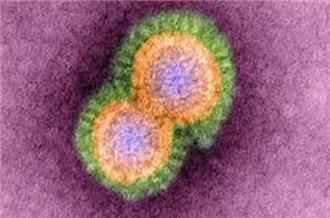The Centers for Disease Control and Prevention (CDC) officials have confirmed a second case in the country of MERS, a virus that has killed at least 145 people, mostly in Saudi Arabia.
The CDC identified the patient as a healthcare worker who travelled from Saudi Arabia to Orlando, Florida.
Middle East respiratory syndrome (MERS) causes fever and kidney failure but is not considered highly contagious.
The patient has been isolated in hospital, health officials said.
MERS belongs to the coronavirus family, which includes the common cold and SARS, or severe acute respiratory syndrome, which caused some 800 deaths globally in 2003.

Health officials say MERS only appears to spread through close contact, but there is no known cure.
“This is unwelcome but not unexpected news,” CDC director Tom Friden told reporters on Monday of the Florida case.
The Florida patient is not connected to the first confirmed US case, reported two weeks ago in Indiana, although the patients’ circumstances are similar.
A healthcare worker who “works and resides” in Saudi Arabia, the Florida patient took a flight on May 1st from Jeddah to London’s Heathrow Airport, then continued on to Boston, Atlanta and finally Orlando.
Health officials said they were contacting passengers on those flights “out of an abundance of caution” and directing them to look out for symptoms which include high fever, cough and shortness of breath.
The first confirmed MERS patient, also a healthcare worker in Saudi Arabia, has been released from hospital and is “fully recovered”.
CDC officials said they had found no secondary infections from the Indiana case and genome testing suggested the virus was not changing, despite a growing number of cases reported in Saudi Arabia since March.
According to the World Health Organization (WHO), 538 MERS cases have been reported worldwide since 2012, with 145 deaths. The vast majority of cases have been found in Saudi Arabia, especially among healthcare workers.
On Sunday, Saudi Arabia urged its citizens to wear masks and gloves when dealing with camels so as to avoid spreading MERS.
[youtube GpLn7zPxAEc 650]
